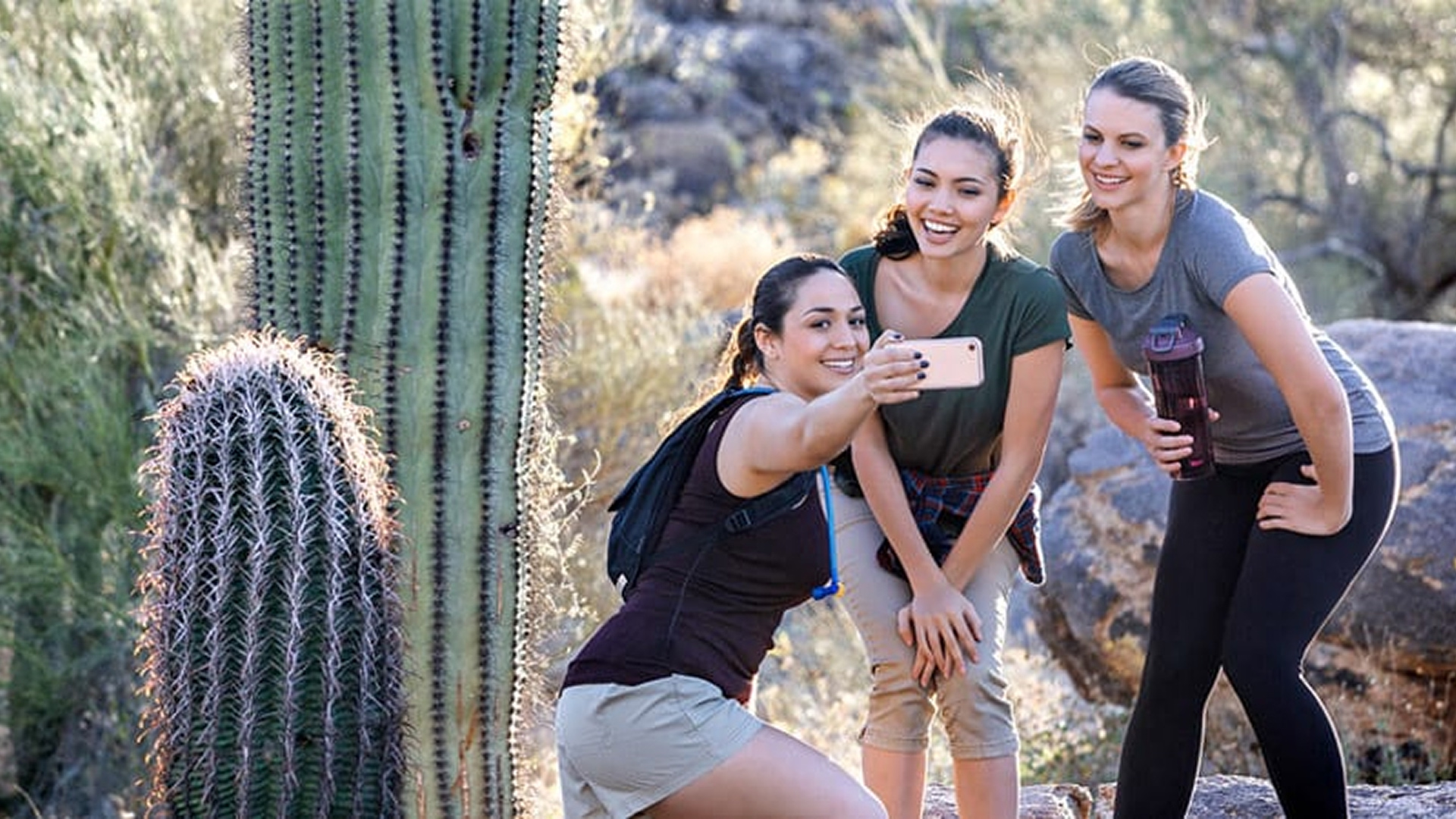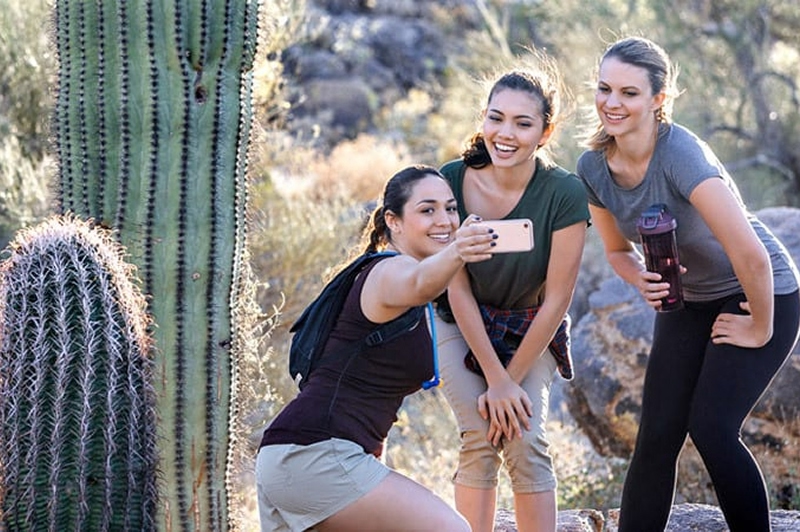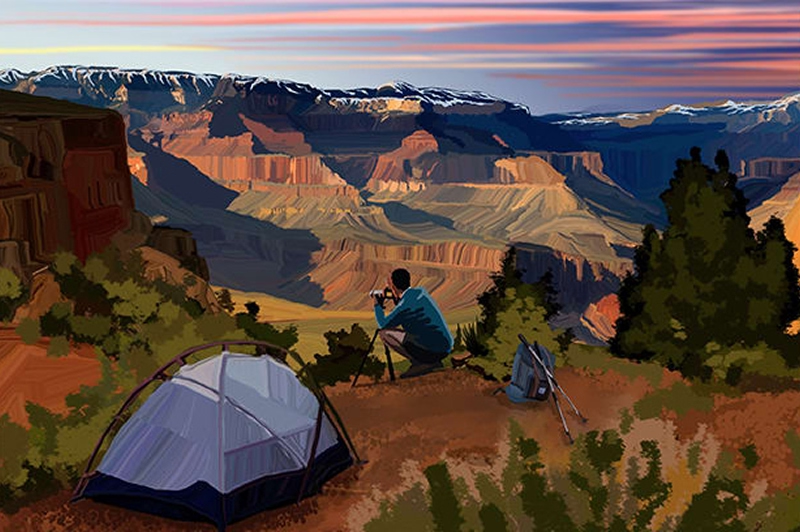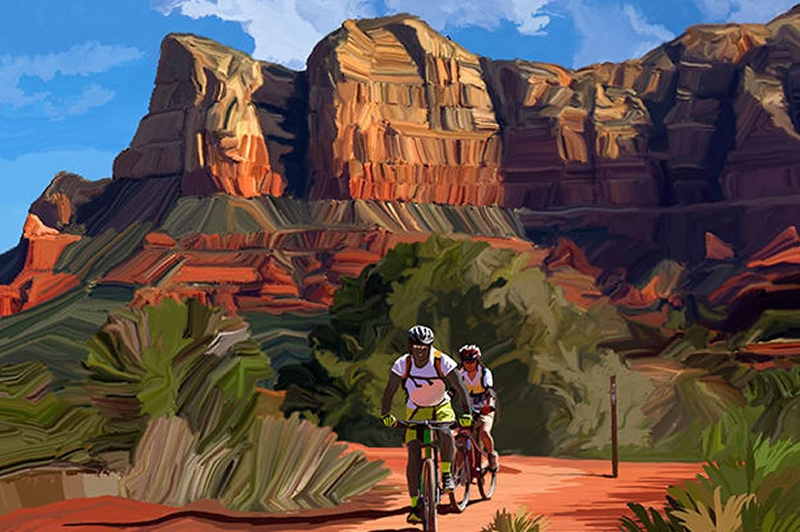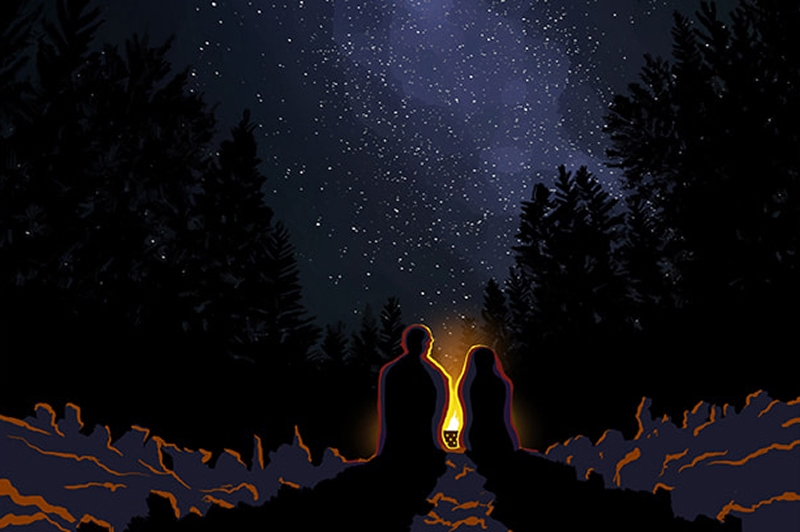Leave No Trace
The national organization Leave No Trace Center for Outdoor Ethics encourages the public to consider the following guidelines to enjoy natural spaces responsibly so these places remain for future generations of travelers.
- Plan ahead and prepare: Have a Plan B (and maybe a Plan C) ready in case your Plan A is closed, blocked or inaccessible.
- Travel and camp on durable surfaces: Avoid stepping or camping on flowers or small trees. Once damaged, they may not grow back.
- Dispose of waste properly: Help keep the trails clear by "taking out what you took in."
- Leave what you find: There is a lot of beauty out there. Let's leave it for others to find.
- Minimize campfire impacts: A campfire is not a garbage can. Take all trash and food with you.
- Respect wildlife: Observe wildlife from a distance and never approach, feed or follow them.
- Be considerate of others: Keep your music volume low or clean up after your pets. Be aware of how your experience may affect someone else's.
Read more about each of the seven principles.
Bring a hiking buddy
Besides having someone with which to share the beauty of an Arizona sunset or an epic mountain view, a hiking partner also means useful backup in case of unexpected incidents, such as a twisted ankle or a wrong turn on the trail. Whether you bring a friend or choose to go alone, don't forget to tell someone where you're going and when you plan to return.
Support Arizona businesses
Whether it's ordering take-out from a local restaurant, browsing the goods at a neighborhood shop, following Arizona-owned businesses on social media—even leaving a positive review on sites like Yelp or Google—there are both big and small ways to support the Arizona economy.
The Arizona Restaurant Association offers a comprehensive list of eateries throughout the state, while groups like the Fourth Avenue Merchant's Association and the Downtown Flagstaff Business Association showcase locally owned businesses in Tucson and Flagstaff, respectively. Shop in person or online, or buy gift cards for future purchases.
(See also our "Shop Local" series for some of our favorite stores in Tucson and Phoenix.)
Respect Tribal communities
If you visit a tribal park, make sure to follow that tribe's rules and laws. This includes getting permission to take photos, observing sacred spaces, and not bringing alcohol or guns on tribal land. For more information and tips for traveling to tribal communities, visit our Tribal Tips page.
Know your limits
If you're biking, hiking, kayaking, camping or otherwise soaking up Arizona's natural lands, be aware of what you can handle—and what you can't. If a strenuous six-mile hike doesn't match your normal level of physical activity, dial it back. Opt for something shorter or easier.
If you have pre-existing health conditions, consult with your physician prior to activity to know what you can handle safely. Regardless of your physical condition, everyone should take precautions against the Arizona sun: Apply sunscreen, don a wide-brimmed hat and wear lightweight, breathable clothing. And…
Drink plenty of water
Summer temperatures in parts of Arizona can top 115 degrees, rising rapidly during the day. To keep you cool, hydrate before, during and after outdoor activities, whether it's a morning hike or a weekend camping trip.
Drink one-half to one quart of fluid for every hour you're outside. Carry a water bottle or hydration bladder and don't wait until you feel thirsty to start replacing fluids—by that time, you're already dehydrated.
Header image credit: Arizona Office of Tourism.


Jessica Dunham
Jessica Dunham is a travel, food and fitness writer whose work has been published in PHOENIX Magazine, Runner's World, Phoenix New Times, Valley Guide, Phoenix Travel Guide, Modern Luxury Scottsdale and more. She is passionate about all things Arizona, especially spontaneous Saturday daytrips around the state. She can be reached at dunham-media.com.








